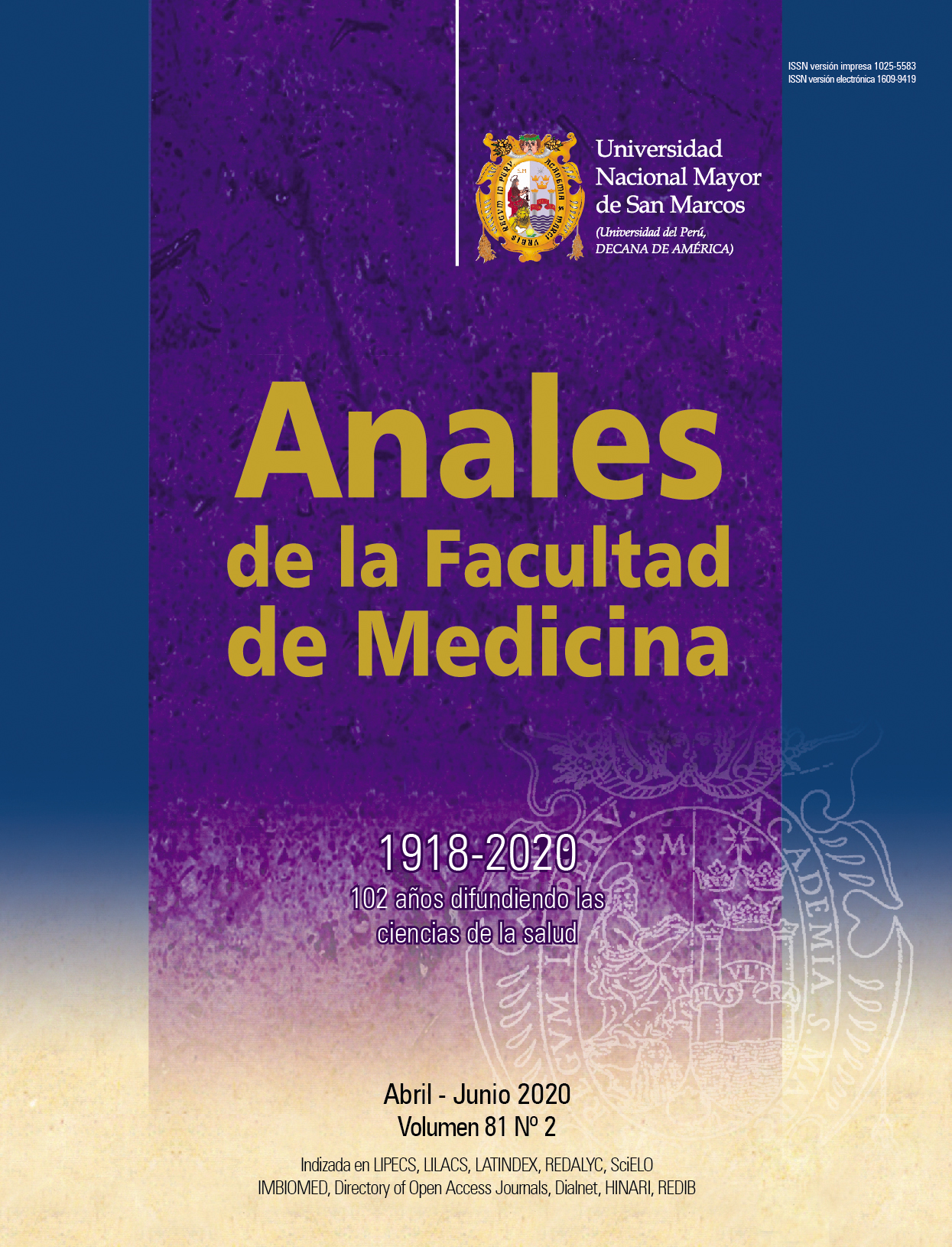COVID-19. Ambulatory management during intense community transmission
DOI:
https://doi.org/10.15381/anales.v81i2.18406Keywords:
COVID-19, Disease Transmission, Infectious, Ambulatory Care, Primary Health CareAbstract
The COVID-19, in the scant six months of its presence, has caused a global health crisis, with greater impact in the poorest countries. Currently, there is a better understanding of the clinic of this disease and its relationship with physiopathological phenomena; however, given the high lethality, the major focus of its management has been oriented towards the hospitalized or critical patient. This information and experience is shared in order to achieve and strengthen better care for people affected by COVID-19 from their first symptoms at home, especially at these times of extensive community transmission, where health services are seriously limited in human and material resources. The aim is to (i) avoid complications beyond those caused by the evolution of the disease itself; (ii) determine the appropriate time for patient referral to the hospital and reduce lethality; (iii) reinforce the isolation of cases; and (iv) possibly, decrease the progression to severe disease. It includes outpatient management after hospital discharge, as well as recommendations to consider if health services collapse; indications for when to discharge the patient for return to work, and highlights the importance of telemonitoring for the success of this practice in the current epidemiological context.
Downloads
Published
Issue
Section
License
Copyright (c) 2020 Anales de la Facultad de Medicina

This work is licensed under a Creative Commons Attribution-NonCommercial-ShareAlike 4.0 International License.
Those authors who have publications with this magazine accept the following terms:
- Authors will retain their copyrights and guarantee the journal the right of first publication of their work, which will be simultaneously subject to Creative Commons Attribution License that allows third parties to share the work as long as its author and its first publication this magazine are indicated.
- Authors may adopt other non-exclusive licensing agreements for the distribution of the version of the published work (eg, deposit it in an institutional electronic file or publish it in a monographic volume) provided that the initial publication in this magazine is indicated.
- Authors are allowed and recommended to disseminate their work over the Internet (eg: in institutional telematic archives or on their website) before and during the submission process, which It can produce interesting exchanges and increase quotes from the published work. (See El efecto del acceso abierto ).



